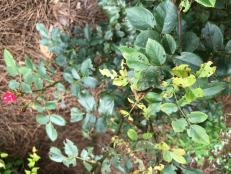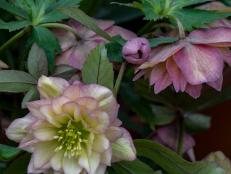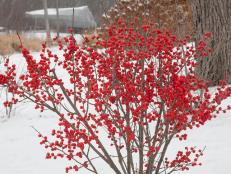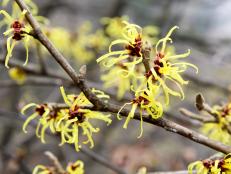Q&A: Readying Roses for Winter

Image courtesy of Cindy Ehrenreich
Q: Do all types of roses require trimming back and mulching to protect them from the winter?
A: Since roses grow wild as far north as Siberia, the short answer to your question is no. However, it depends on which type of rose you are trying to grow. Hybrid tea roses in particular do need some pruning and preparation and real protection to survive the winter. So do most grandifloras and floribundas. Other types of roses such as those with R. rugosa parentage and some of the old garden roses should not be pruned in fall and, although they will probably survive without extra preparation, they would appreciate some mulching. Some modern roses require a minimum of care.
Protection against extreme cold isn't the only purpose of insulating roses. You also want to protect them from unnatural warm spells that can spell disaster for roses in the middle of winter. Sudden weather changes can create undue stress on a rose plant. A too-warm November or December followed by a searingly cold January can kill even the best rose if it hasn't been protected. Plus, winter protection shields canes from drying winds. Keeping them continuously cold — whether through mulch or simply a thick blanket of snow — is key.
Also, roses need time to prepare themselves for winter. Stop deadheading the blooms in fall so the plant can develop hips; the hips signal the plant to begin winding down. Stop feeding roses six weeks before the first frost in your area.
Make sure the rose plant is well watered.
When fall nights become consistently frosty, apply bark mulch to the base of the plant, mounding it about 12 inches high above the crown (base) of the plant. In USDA Zone 6, this might best occur in late November.
If the ground freezes solid in your area, add leaves (oak are best because they don't mat) or straw on top of that so that much of the canes are essentially covered. In mild climates where minimum temperatures stay above freezing, leave the graft union an inch or two above the soil surface.
Tender roses need full protection — hilling in plus mulch and cover — in colder climates.
Hardy roses benefit from insulation too.
Knowing a rose's identity is ideal because there can be considerable variation in hardiness from one cultivar to the next — even within the same rose type. The floribunda 'Iceberg' is hardy to USDA Zone 4 while 'French Lace', another floribunda, is hardy only to USDA Zone 7. If you're not sure which type or cultivar you have, or its hardiness factor, contact your local rose society, extension agent or trusted nurseryman.













































